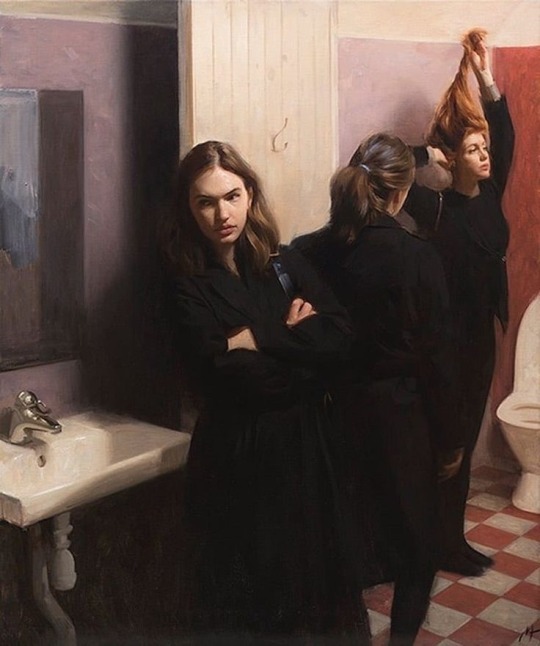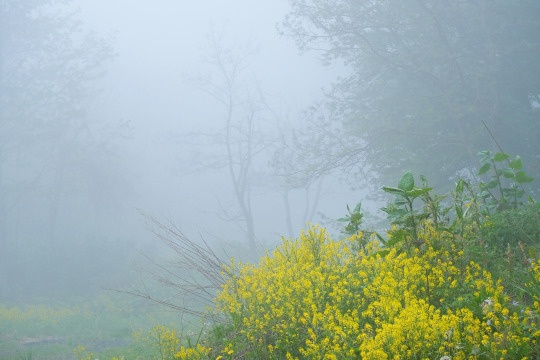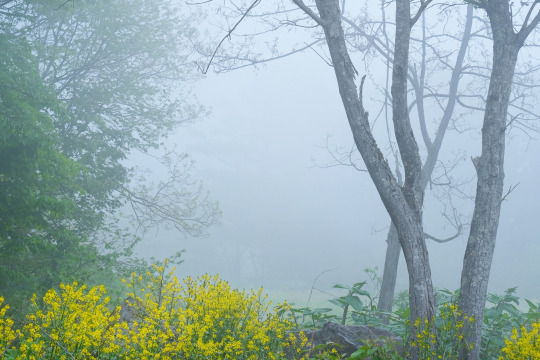Text
let us be pathetic together
i hate when none of you are online. stop having lives and come be pathetic with me
15K notes
·
View notes
Text

I am bruised by unknown touch
i don’t remember being touched
My ribs are crushing my heart
i don’t remember being loved
I was born 80
i am 8 now
Soon I shall be what I was- a zero
not infinite
I ate all the hands that reached me
i ate my hunger away
/love comes in all forms/
#light academia#writeblr#dark academia#poets on tumblr#aesthetic#artists on tumblr#literature#painting#writers on tumblr#funny memes#photography#aurora#kat shares stuff
23 notes
·
View notes
Text

this is the hug y’all need.
come here. let me hug you. put your head on my shoulder and let me hold your hand, you little rebel.
the world is waiting for you at the finish line. but sit with me while you catch your breath. look how beautiful it is everywhere!
#mental health#light academia#writeblr#dark academia#poets on tumblr#aesthetic#artists on tumblr#literature#painting#writers on tumblr#funny memes#kat shares stuff
35 notes
·
View notes
Text
This is beautiful!!!!
reading a guilty pleasure in the sun right now
16 notes
·
View notes
Text
The moments we misplace

Of pauses, love and hurt
It stings—revealing your hurt only to be met with a dismissive “avoid”. In that moment, it feels like my feelings hit a wall. The simplicity of the response belies the complexity of the pain it triggers, leaving a chill where warmth used to be.
Why is it that when I reach out, trying to bridge the gap with my vulnerabilities, it seems so easy for him to turn away? This isn’t about making accusations or stirring conflict, it’s about seeking a sliver of recognition for the emotional weight I carry. It’s about wanting the person who’s supposed to be my partner in all things to stand with me, not apart.
We used to navigate these waters with more grace, finding our way through disagreements with understanding and patience. I long for those days—when our communication felt like a dance rather than a battle, when each step brought us closer even as we moved through challenges.
So here I am, laying my cards on the table not to provoke a reaction, but to clear the air. It’s a call back to the heart of our connection, to remember and revive the empathy and mutual respect that once defined us. Let’s find our way back to that place. Because ultimately, what matters isn’t just getting past disagreements, but growing through them together.
This is my hope: that we can return to listening, really listening, to each other. That we’ll find strength in our shared vulnerability, in the honesty that binds rather than divides. This isn’t just about finding peace; it’s about enriching the very foundation of our relationship.
Between what is said and not meant, and what is meant and not said, most of love is lost.
Love.
#light academia#dark academia#writeblr#poets on tumblr#artists on tumblr#literature#painting#aesthetic#writers on tumblr#currently reading#love#hurt/comfort
22 notes
·
View notes
Text

I hate myself today
I love you today
I hate myself everyday
I love you everyday
Today i hate me a little more
Today i’ll love you a lot more
//love is oscillatory//
#light academia#dark academia#writeblr#poets on tumblr#aesthetic#artists on tumblr#painting#currently reading#writers on tumblr#literature#funny memes
21 notes
·
View notes
Text
She was just here

Observing the quiet chaos of family dynamics, revealing the unseen struggles at the dinner table.
The dinner table is a battlefield tonight, scattered with the echoes of a family slowly coming undone. Laughter from the children slices through the usual hum of the evening, while their mother sits at one end, silent, her gaze far away. She's wrapped up in herself, disconnected from the vibrant, chaotic life in front of her. It's not coldness but a quiet resignation, a sign of the weight she carries, preventing her from embracing her role as a mother fully.
The kids don't just walk—they dart and dash, their movements sharp and sudden, echoing the unstable currents of their home life. Their father, barely present, casts a long shadow over the dinner, his absence cooling the room further.
My cousin seems trapped by her own unresolved struggles, unable to provide the nurturing her children desperately need. Her detachment sends ripples through the evening, distorting what we try to maintain as normal. The children respond in the only way they know how—by amplifying their presence, their wild behavior a plea for attention that remains unmet.
The tension in the air is thick, and I'm filled with a raw frustration watching this scene unfold. I want to shake her awake, to show her what her children need, but I remain seated, boiling in silence, witnessing the slow erosion of innocence.
Around us, family members exchange looks, whispering about discipline and respect, commenting on failing grades and school calls. But their words miss the heart of the matter. It's not just about behavior or school; it's a deeper cry for help that's lost amid the evening's noise.
As the night drags on, the children's energy fades, their laughter turning to arguments, their smiles to frowns. The change is sharp, a clear sign of the fragility beneath their wild exteriors. When they finally retreat, seeking quiet corners of the house, I'm left wondering about the fate of children left to navigate their emotional landscapes alone.
This isn't just about one night; it's a recurring pattern, etching deep into the foundation of this family. Standing up to clear the table, the remnants of dinner feel symbolic, like clearing away the crumbs of a childhood that deserved so much more.
In the quiet aftermath, a question haunts me, heavy with the weight of what could have been: "What becomes of the children left to fend for themselves in the emotional wilderness?" As I ponder this, I'm reminded of a line by James Baldwin that captures the essence of our failings and hopes:
“Children have never been very good at listening to their elders, but they have never failed to imitate them."
#light academia#writeblr#dark academia#poets on tumblr#aesthetic#artists on tumblr#painting#literature#writers on tumblr#studyblr#essay#motherhood#trauma#childhood
21 notes
·
View notes
Text
THANK YOU! I really appreciate this <3
Missed the Party, Got the Blues

Of fading friendships, joy and parties
There's something sharply visceral about watching joy from the outskirts. This feeling of watching from the sidelines while also being part of the story makes everything feel even more confusing. It's a detached ache, being engulfed in your own storm while others bask in sunlight. I missed a big day, not out of neglect but because I was wrestling with shadows that tethered me to darker places. Places where laughter doesn’t reach, where smiles are strained and scarce.
I voiced my struggles, to explain my absence, but my words felt like throwing stones into the ocean-sunk before they could ripple the surface. Understanding was a nod, fleeting and shallow, not the anchor I needed. There I was, caught in the throes of a silent battle, while the friend stood in the spotlight of celebration, untouched by the gloom that clung to me like a second skin.
It’s not just about missing a party, it’s about how my silence was personified into lack of enthusiasm, how my battle was unseen amidst the firecrackers. I found myself apologizing for the heaviness I carried, for the darkness that wasn’t invited but came anyway. Each apology was a quiet concession, a whispered admission that perhaps my pain was too inconvenient to acknowledge amidst the happiness.
This isn’t about a failure to see, it’s about the collective ease with which joy ignores pain, how celebration can deafen us to the quiet despairs whispered in corners. It’s a deep realization of how loneliness can exist in the midst of companionship, how isolation can persist in the crowd.
Writing this, I’m not seeking asylum into my words; I’m laying bare the dissonance between shared joy and private suffering. I document these moments not to seek comfort but to articulate my reality of the emotional vortex.
This is my testament to the complexities of friendship, a narrative that doesn’t shy away from the uncomfortable truths of emotional disconnects. It’s a raw, unadorned map of the terrain where joy meets pain. This is not just reporting on life; it's an examination of the spaces between us, the quiet voids that go unfilled, the understanding that sometimes remains just out of reach.
In writing this, I find no neat closure, only the clarity of my own reflections, the acceptance of my role on the periphery of light. This piece is a mirror held up to the moments we often overlook, a call to acknowledge the whole spectrum of human emotion, even when it disrupts the narrative of joy.
“We was girls together,” she said as though explaining something. “O Lord, Sula,” she cried, “girl, girl, girlgirlgirl.”
-Sula, by Toni Morrison
Love.
21 notes
·
View notes
Text
Missed the Party, Got the Blues

Of fading friendships, joy and parties
There's something sharply visceral about watching joy from the outskirts. This feeling of watching from the sidelines while also being part of the story makes everything feel even more confusing. It's a detached ache, being engulfed in your own storm while others bask in sunlight. I missed a big day, not out of neglect but because I was wrestling with shadows that tethered me to darker places. Places where laughter doesn’t reach, where smiles are strained and scarce.
I voiced my struggles, to explain my absence, but my words felt like throwing stones into the ocean-sunk before they could ripple the surface. Understanding was a nod, fleeting and shallow, not the anchor I needed. There I was, caught in the throes of a silent battle, while the friend stood in the spotlight of celebration, untouched by the gloom that clung to me like a second skin.
It’s not just about missing a party, it’s about how my silence was personified into lack of enthusiasm, how my battle was unseen amidst the firecrackers. I found myself apologizing for the heaviness I carried, for the darkness that wasn’t invited but came anyway. Each apology was a quiet concession, a whispered admission that perhaps my pain was too inconvenient to acknowledge amidst the happiness.
This isn’t about a failure to see, it’s about the collective ease with which joy ignores pain, how celebration can deafen us to the quiet despairs whispered in corners. It’s a deep realization of how loneliness can exist in the midst of companionship, how isolation can persist in the crowd.
Writing this, I’m not seeking asylum into my words; I’m laying bare the dissonance between shared joy and private suffering. I document these moments not to seek comfort but to articulate my reality of the emotional vortex.
This is my testament to the complexities of friendship, a narrative that doesn’t shy away from the uncomfortable truths of emotional disconnects. It’s a raw, unadorned map of the terrain where joy meets pain. This is not just reporting on life; it's an examination of the spaces between us, the quiet voids that go unfilled, the understanding that sometimes remains just out of reach.
In writing this, I find no neat closure, only the clarity of my own reflections, the acceptance of my role on the periphery of light. This piece is a mirror held up to the moments we often overlook, a call to acknowledge the whole spectrum of human emotion, even when it disrupts the narrative of joy.
“We was girls together,” she said as though explaining something. “O Lord, Sula,” she cried, “girl, girl, girlgirlgirl.”
-Sula, by Toni Morrison
Love.
#light academia#writeblr#dark academia#poets on tumblr#aesthetic#artists on tumblr#writers on tumblr#joy#party#friendship#women#tumblr girls#girlhood#adulthood
21 notes
·
View notes
Text
The words he never wrote about me

Of loneliness, deaths and Old age
There’s a starkness to the memory of him lying in that hospital bed, motionless, that digs at me. A starkness in the cold, antiseptic smell of the room that's hard to forget, an image that keeps replaying whenever I close my eyes. It was more than just saying goodbye—it was a preview of mortality, served cold and unadorned. The last time I saw him, there was no hint of the person who had lived so vibrantly. Just a shell, a reminder of how quickly everything can end. That shit is terrifying, not peaceful or contemplative—just raw, unfiltered fear.
Then came the wake, and with it, the letter. My aunt's voice carried across the room, reciting his thoughts and memories—a roll call of everyone who touched his life. Friends, neighbors, even the house help were honored for their dedication. But me? There was nothing. Silence where my name should have been. It felt like being invisible in a crowded room, unheard amid the chatter. He recounted everyday trivialities, yet completely omitted his own granddaughter. As she continued, a cold realization settled in my stomach: in the vast narrative of his life, I was merely an oversight, an empty space he inadvertently skipped over. It wasn't intentional, but that almost made it worse. The inadvertent omission cut deep, a stark, raw pain that echoed with the silence of my unspoken name.
The next day, my aunt lost it—her grief manifesting in a spectacular meltdown that turned into a twisted family spectacle. Plates smashed, voices raised. Grief, I’ve learned, isn’t pretty. It’s not solemn or dignified; it’s messy, it’s loud, it’s desperately human. Her breakdown, obnoxious as it felt, was just another expression of pain, another way to lash out at the world that ripped him from us. It showed me that there’s no right way to deal with the void someone leaves behind. It’s all just clawing at whatever can keep us above the surface.
And then there’s my grandmother. Every day, she sits by the window, staring out at a world she seems less and less a part of. There’s a loneliness to her silhouette that’s crushing. To think of her and my granddad, partners for over sixty years, and now she’s just... alone. Watching her is a gut punch, a brutal reminder that sometimes love isn’t enough to stave off the solitude that creeps in with old age. It’s not just sad; it’s terrifying. To see how easily a life shared can turn into solitary confinement—how can I not question everything I know about love and companionship? It makes me wonder about the futility of it all, about the inevitable decay of connections we hold dear.
This isn’t comforting. It doesn’t bring me peace. It scares the hell out of me. I'm left questioning the very fabric of relationships- what's the point if it can all evaporate, leaving one half alone to stare out a window? It makes the certainties of life feel like a farce.
Grief is a guillotine, sharp and final, hope is chronic bleeding, never clotting, always flowing.
So here I am, not finding solace in soft words or silver linings, but facing the raw, brutal truths head-on. Sometimes, we are forgotten, and it's not a gentle nudge but a slap. We scream into the void, not because we hope for an answer but because it's all we can do. I’m not writing this to tie it up with a neat bow, to say it's all part of a bigger plan or that there's a lesson to be learned. I'm writing because it hurts, because it's unfair, and because, despite everything, this is the only way I know how to make sense of the chaos.
Being overlooked in his final words doesn't bring me quiet dignity. It brings anger, confusion, and a deep, lingering pain. And I'm here, raw and unguarded, owning that pain, because it's mine, and it's real. And maybe, just maybe, by laying it all out, I can start to rise above these remnants of grief that are stuck in my throat.
To be left out of the story is to understand that we are all authors of our own, that we write not for the eyes of others, but for the sanctity of our souls.
Love.
#my blog#writeblr#dark academia#light academia#aesthetic#poets on tumblr#artists on tumblr#literature#writers on tumblr#essay#lonliness#love#heartbreaking 💔#letters
17 notes
·
View notes
Text

Ars Poetica in Which the Poet is Not a Cockroach, Jason Myers
4K notes
·
View notes
Text
Marx in the Margins: Spotting Economic Theories in Victorian Texts

Ah, Karl Marx! While most people today might toss his name around in discussions about economics or politics, did you know that his theories had a pretty fascinating impact on literature during the Victorian era? That's right, the ripple effects of Marx's ideas reached beyond economics textbooks and into the very essence of Victorian storytelling.
So, let's understand more about how Marx, with his critical views on capitalism and class struggle, influenced the literary landscape of that time. It wasn't just about factories and workers; it was about how these economic changes were altering the very fabric of society, and Victorian authors were all over it.
Marx's Materialist Conception of History
Marx introduced what he called the "materialist conception of history," which suggests that the economic foundations of a society influence every aspect of life, including its culture and literature. This theory proposes that it's not the human consciousness that shapes society, but rather the other way around: the economic system shapes the societal structure and thus the cultural outputs, like literature.
This perspective was a game-changer for literary analysis. Suddenly, critics and writers could use this lens to dissect texts, looking at how Victorian novels reflected or critiqued the economic conditions and class structures of their time. It offered a new depth to literary criticism that went beyond just looking at a text for its artistic value.
Influence on Victorian Novelists
Victorian novelists like Charles Dickens and Thomas Hardy were particularly adept at weaving social commentary about class and capitalism into their narratives. Their novels often spotlighted the plights, struggles, and resilience of the working class—a direct mirror to Marx’s critique of how capitalism exploits labor.
For instance, Dickens’ novels frequently delve into themes of poverty, social inequality, and the grim realities of industrialization. These weren't just background settings; they were integral to his plots and character developments, showcasing how deeply intertwined personal fortunes were with the socio-economic forces of capitalism.
Marxist Criticism in Literary Circles
Marxist literary criticism emerged as a powerful tool during and after the Victorian era, analyzing texts based on the socio-economic forces at play in them. This approach examines how literary works reflect, challenge, or stay silent on the issues of their times, particularly in terms of class struggles and economic disparities. It's like putting on a pair of glasses that helps you see the underlying economic influences on the narratives and characters.
The Broader Impact
The influence of Marx's theories extended beyond just the analysis of literature. It spurred a broader reflection on the role of the author in society. Were Victorian writers merely entertainers, or were they social commentators? This led to a richer understanding of literature as a potent tool for societal critique and change, pushing writers and readers alike to question the status quo and imagine new possibilities for society.
In sum, Marx might not have penned novels, but his theories offered Victorian writers and critics a new vocabulary and framework to explore and critique their rapidly changing world. The economic realities of capitalism, so central to Marx's work, became the landscapes upon which many Victorian novels were set, and understanding this backdrop can deeply enrich our reading of these texts today. So next time you pick up a Victorian novel, remember that there might just be a bit of Marx between the lines, influencing how we interpret the struggles and dreams of those long-ago characters.
#artists on tumblr#writeblr#light academia#dark academia#aesthetic#writers on tumblr#quotes#capitalism#marxism#karl marx#victorian#literature#economy#charles dickens#art history#funny memes#protest
3 notes
·
View notes
Text

where are you
i’m here
i can’t see you
close your eyes
i see you
//where do you go when i need you//
#light academia#writeblr#poets on tumblr#dark academia#aesthetic#painting#literature#spilled ink#artists on tumblr#poetry#the tortured poets department#love quotes#quotes#studyblr#heartbreak#long distance relationship
118 notes
·
View notes
Text
Dreamscapes and Time Warps: Leonora Carrington’s Surrealism

“Surrealism is like a secret door to the unknown right in the middle of the ordinary.”
It is something that could have been said by Leonora Carrington if you happened to meet her in a dream. Imagine wandering through an art gallery where a horse turns and says to you, “I warn you, I am only an invention of your imagination.” This is the intriguing parallel world that Carrington opens up for us in her story “The Debutante.” But these lines do more than tickle your fancy; they poke at the very stuff of our world much in the same way that her painting “The Giantess” has a mythic figure looming over a dream world, blurring lines between the dream world and our waking life.
She was not just one face more in that surrealist crowd: Leonora was a new torch trailblazing with the mysticism and feminism. Born in England but made in Mexico, she transformed all her experiences from both worlds into her productions. Her works often like to emphasize themes of change and challenge stale stereotypes linked to women in her time. Take a look at “The Giantess,” and more than seeing an immense form, one will feel the powerful spiritual presence she represents—nearly as though she were ushering one into a world lorded over by goddesses.
The movement of Surrealism itself post-World War I, motivated by a shared longing for freedom from the fetters of linear thinking, was started by André Breton with the 1924 publication “Manifesto of Surrealism”. Freud’s explorations of the unconscious inspired surrealism; it was less a stylistic influence than a revolution of the mind. It wasn’t just Carrington. Icons like Salvador Dalí and René Magritte were painting scenes so bizarre, yet so fascinating, they challenged our very ideas about what is real—think of Dalí’s “The Persistence of Memory” and its droopy clocks.
Today, with the help of modern technologies such as virtual reality and AI, surrealism still does not lose its relevance. They include surrealistic technologies in their daily life to make the absolutely irrational a little bit familiar but still exciting. Pushing us to question and redefine what’s real, they keep the spirit of surrealism fresh and alive.
And it wasn’t all, it was Carrington keeping the surrealist flame alight.
Others included Remedios Varo with her mystical-science mash-ups, telling stories one felt were known but not quite remembered; Kay Sage, whose lonely landscapes drew one into a silent, self-reflective world; and Toyen, whose art penetrated far into the realms of the eroticism and dreamlike state. Moving to the 21st century, surrealism seems to be as strong and meaningful to the human condition as it ever has.
Artists such as Leonora Carrington have left for us not just a gallery of startling images; they have left a dynamic legacy that challenges us to dream greater, question further, and wander around in the strange corridors of our own consciousness.
Their contribution stretches much farther than the visual; they become portals to a dimension where the conceivable limits of perception are stretched and bent. In such a world, surrealism by Carrington and her contemporaries is not a mere part of the art scene; it is dynamic, ever-present provocation to see the world with a vastly different set of eyes.
#light academia#writeblr#artists on tumblr#quotes#poets on tumblr#dark academia#aesthetic#literature#surrealist art#surrealism#leonora carrington#dark aesthetic#photography#painting#kat shares stuff#love quotes
8 notes
·
View notes
Text

i preserve the calm of your voice
i box it up for a century’s need
when I’m held by your gaze
you are the sun
i your moon adrift
how do I glow if not through your gift?
//would moon ever shine if not for the sun//
#artists on tumblr#light academia#funny memes#poets on tumblr#writeblr#dark academia#writers on tumblr#aesthetic#photography#painting#art#poetry#poemblr#love#love poem#quotes#love quotes#lovers#kat shares stuff
34 notes
·
View notes


